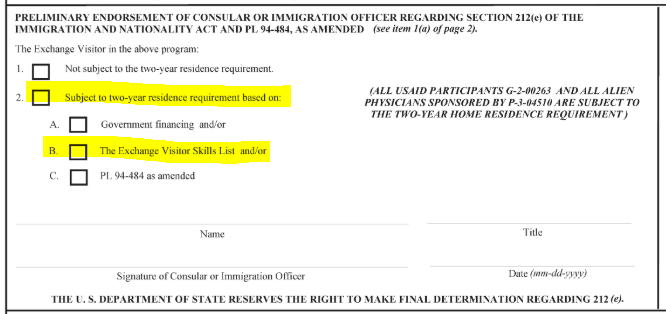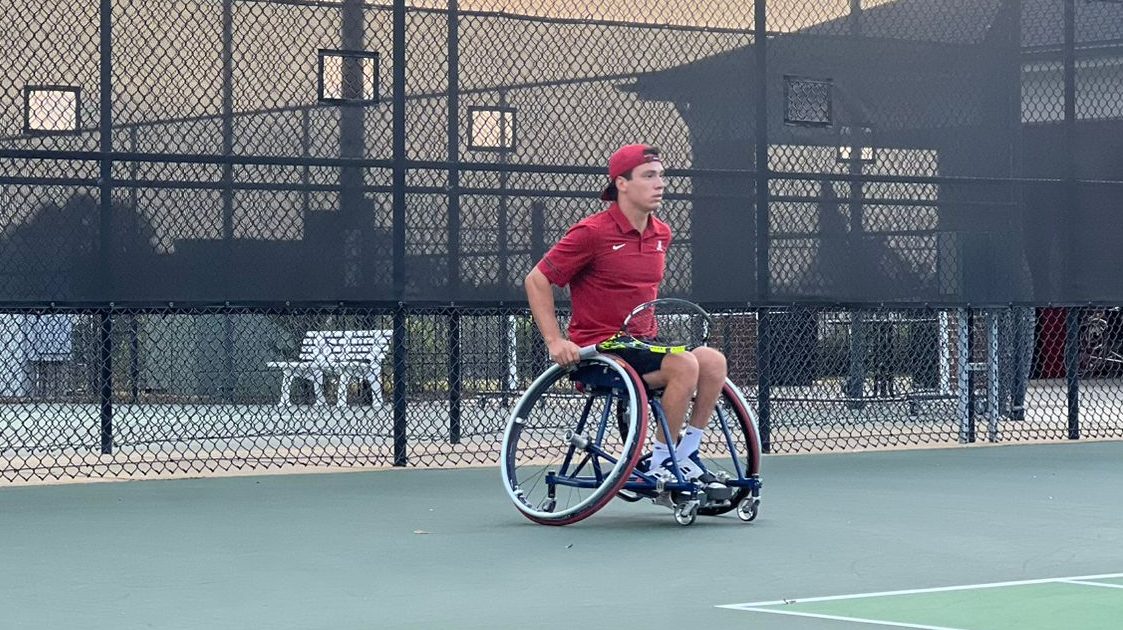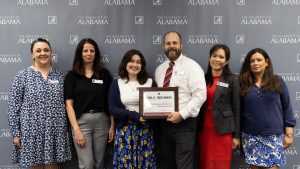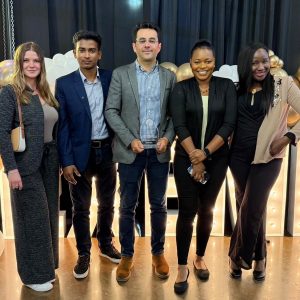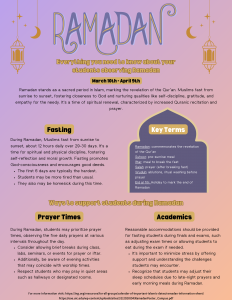Sunday Okafor likes to help others. Before he started studying for his doctorate in civil engineering at The University of Alabama, he knew he wanted to help make roads safer for everyone.
“I love to see a more efficient transportation system; I love to see how we can ensure the safety of people who are moving from one place to another,” Okafor said. “My dissertation was on the idea of instead of looking at the historical crashes to prevent future ones, why not try to do something to prevent the crashes from happening in the first place?”
A first-generation student from Nigeria with five siblings, Okafor came to UA in 2021 after finishing his master’s degree in civil engineering in the United Kingdom. In three short years at UA, he is set to cross the stage in August before heading to Arkansas to work as a project engineer for Garver, an engineering and consulting firm.
He began looking at UA because he had some friends who were already studying here, but he ultimately chose UA for the support and resources offered to international students.
“That understanding of the international community is very important to me,” Okafor said. “Being able to integrate easily and have people that can guide you, the support here, that was a big deal for me to make that decision to come to UA.”

He has presented his research and served on a panel at conferences such as the Transportation Research Board annual meeting and the ITE annual meeting. He also earned the honor of being named a 2024 ITE Young Leader to Follow.
On top of continuing his educational career at UA, Okafor served as the president of the African Students Association and vice president of the UA students’ chapter of the Institute of Transportation Engineers.
Okafor said he has honed his interpersonal skills through these conferences, as a Graduate School Ambassador, and as part of the first class of Graduate Ambassador Influencer Network, GAIN for short, Influencers — a group of students who promote the Graduate School on campus and through social media. He said the experiences he’s had at UA not only made him more confident but also more compassionate.
It is possible to do great things even if you are from a very humble background.
“Emotional intelligence and patience are some things that being an ambassador has helped me fully develop,” Okafor said. “It taught me to be patient with people and put myself in their shoes when I’m trying to respond. Being calm and well-receptive in terms of my responses, it helps those students.”
In his own time, Okafor extends his role as an influencer on X, formerly known as Twitter, and on LinkedIn. He gives advice on applying to graduate school in the United States, and he hosts informational webinars for those students. However, as he transitions to working in the field, he will likely not be on as much, and his content will shift to be more career-centered.
Though his time at the Capstone is coming to a close, Okafor is glad for his experience and the professional development opportunities he received at UA. He wants to encourage others to take a leap of faith and never let others impact their belief in themselves.
“It is possible to do great things even if you are from a very humble background,” Okafor said. “I never doubted what I could do. I always know that whatever I want to do, I can achieve it if I put my mind to it.”

